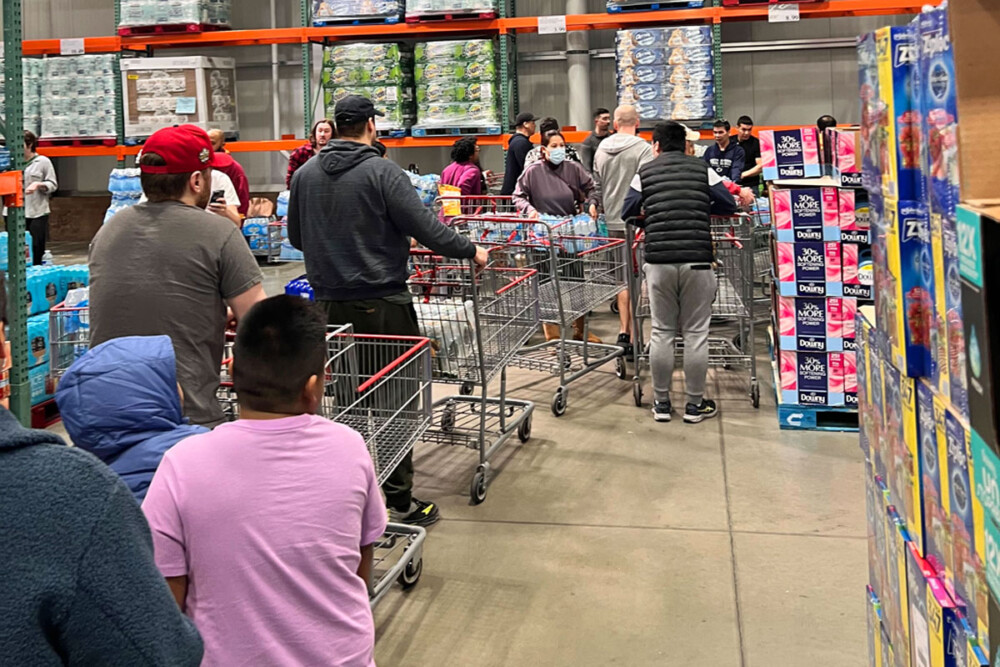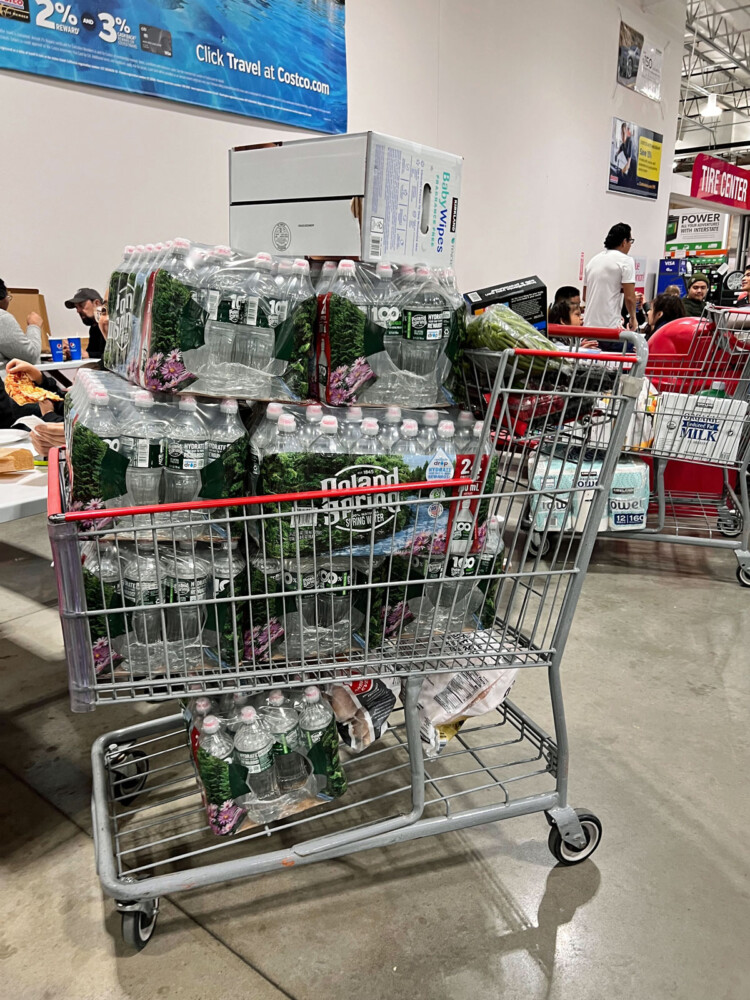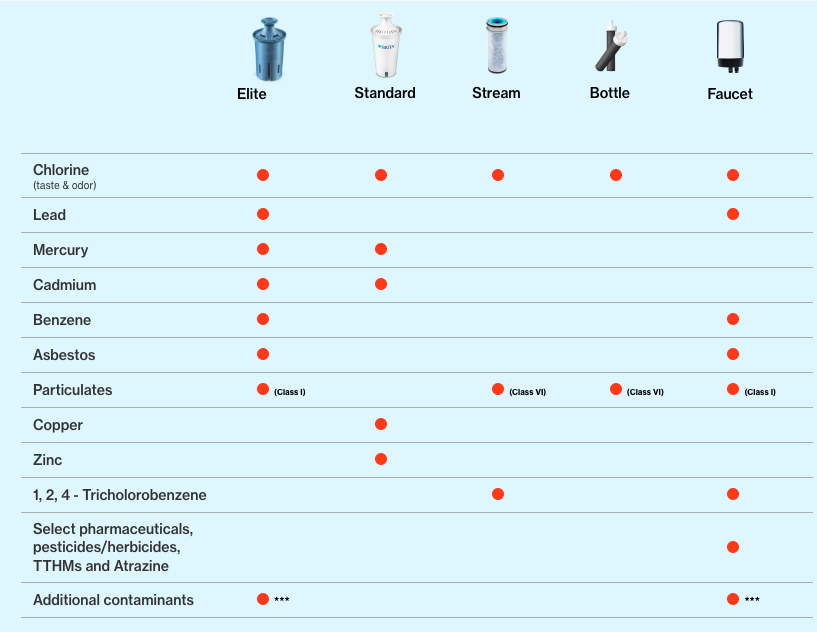
Woodergate 2023 explainer: What we know about chemical spill in the Delaware & the City Water Supply
Here’s a quick summary of the background, common questions and where your drinking water comes from.
UPDATE 3/28 at 10:00 AM: The Philadelphia Water Department issued an alert that drinking water is safe at least through Wednesday, March 29th at 11:59 PM. Visit the City of Philadelphia’s website for the latest updates.
Philadelphia went into a collective mass panic on Sunday (March 26th) when an emergency alert was sent out at 12:55 PM, stating that the City recommended to start drinking bottled water for drinking and cooking at 2 PM ET. Many city residents made a mass exodus to the grocery store and cleared bottled water aisles.

The City released another text alert at 5:09 PM Sunday evening, declaring that tap water is safe through 11:59 PM Sunday night. The City of Philadelphia declared tap water is safe through Tuesday at 3:30 PM during a press conference on Monday evening.
The hazardous chemical spill in Bristol, Bucks County, occurred on Friday night. An estimated 8100 gallons of latex polymer and water solution spilled from the Trinseo Altuglas Facility into Otter Creek, a tributary which flows into the Delaware River. In addition to the latex, butyl acrylate (also released during the Norfolk Southern train disaster in Ohio) and ethyl acrylate were released by the spill. The Philadelphia Water Department was monitoring Philadelphia’s Baxter Drinking Water treatment plant.
How does the Water Department know that the water is safe? Why do the recommendations keep changing?
The Philadelphia Water Department uses Tidal Spill Model Tool (and projections) to track the contaminant movements.
The Philadelphia Water Department is collecting and testing water for organic materials that make polymers and latex polymer particles, including butyl acrylate, ethyl acrylate and methyl methacrylate. The samples are being collected at 12 locations, including the Delaware River, outside the Baxter Raw water treatment facility, the intake (before treatment) and outflow (after treatment), and entry points along the distribution system. Read the chemical spill explainer by Billy Penn for more details on these chemicals.
So why was there a delay from the time of spill Friday to informing the public on Saturday/Sunday?
There is a delay from conducting the test to getting the results, said Mayor Kenney during Monday’s press conference. As Water Department Commissioner Randy Hayman explained, engineers test the water and monitor for potential contaminants on a daily basis. “Once we made the determination that there was an issue here with heightened concern, we brought it to your attention,” said Water Department commissioner Randy Hayman.
The Water Department will be continuing to test from the river to the end of the water treatment process, expecting that the spill remnants will move downstream sometime Wednesday/Thursday. The water likely is moving faster downstream due to rain yesterday, which means the contaminants would move to the Delaware Bay quicker.
Should I keep backup water on hand?
Mayor Kenney and the city officials recommended that residents should always have a 3-day supply of water on hand in case of any emergency, not just an event like this. (That equals 1 gallon/per person, per day.) It doesn’t have to be purchased bottled water, either – it can be tap water stored in vessels.
Can I boil my water? Can I use my Brita?
If the chemicals do make it into the water supply, bottled water is the safest bet. No, boiling water does not help remove chemical toxins from your water supply. Brita and similar home filters likely would not remove the chemicals – dependent on the system, they remove specific common chemicals.

What about the company that’s responsible for the spill, Trinseo? Is the City holding them accountable?
The Pennsylvania Department of Environmental Protection (DEP) is investigating the cause of the spill. “We as a city are going to wait until that investigation is over, and we’ll certainly be interested in the results. Then, we’ll identify the appropriate actions for the City of Philadelphia and the residents of Philadelphia,” said Deputy Managing Director Mike Carroll.
What’s happening in Bristol, where the spill happened?
The U.S. Coast Guard collected over 60,000 gallons of contaminated water after the chemical spill in waterways, according to Levittown Now. Coast Guard officials said that cleanup efforts are focused on the storm drain system and outflow along Otter Creek, where the chemical spilled into.
Where does my Philly drinking water come from?
Unsure of where your drinking water comes from in the City? The short answer is that – depending on where you live – water is sourced from the Delaware River, Schuylkill River, or a mix of both. Read our eco-explainer for a complete explanation of where your water comes from.










